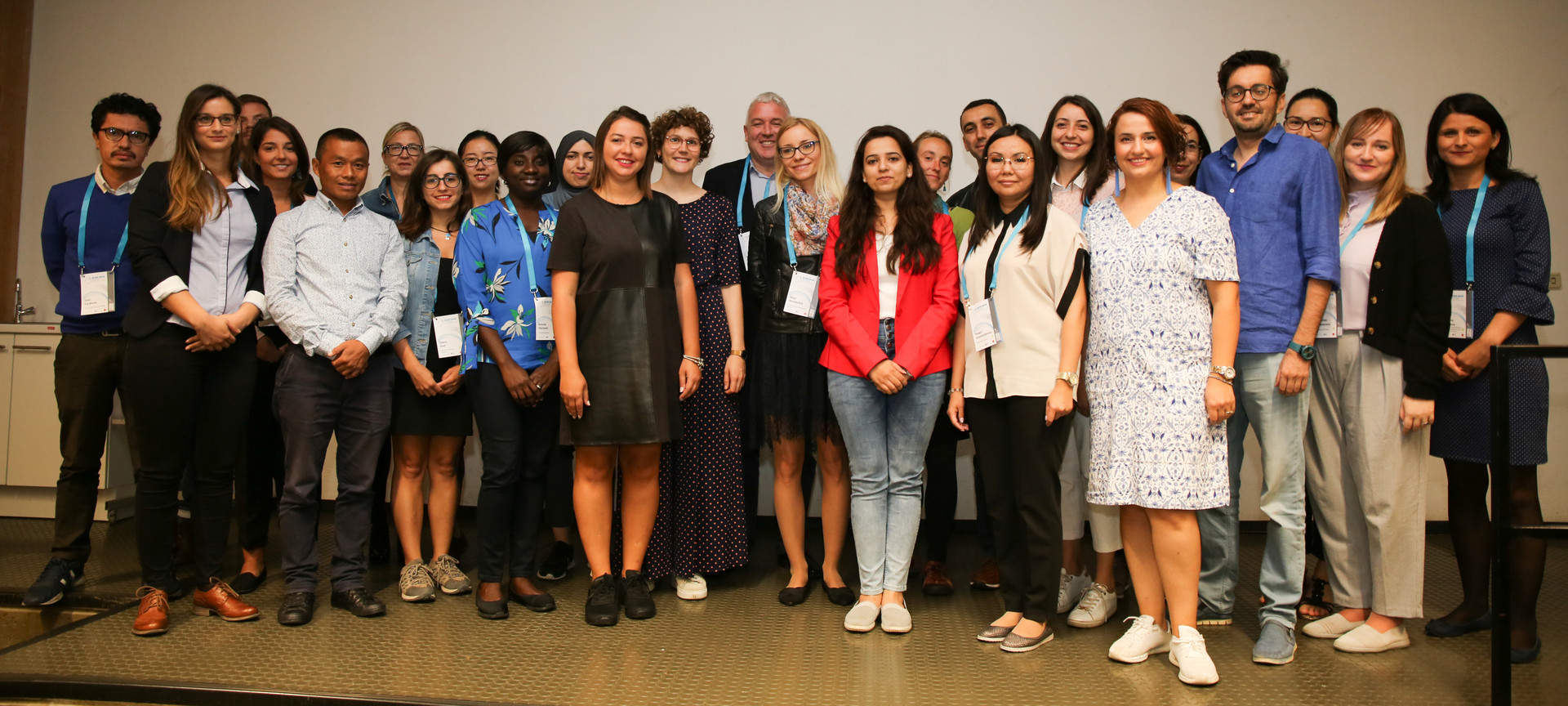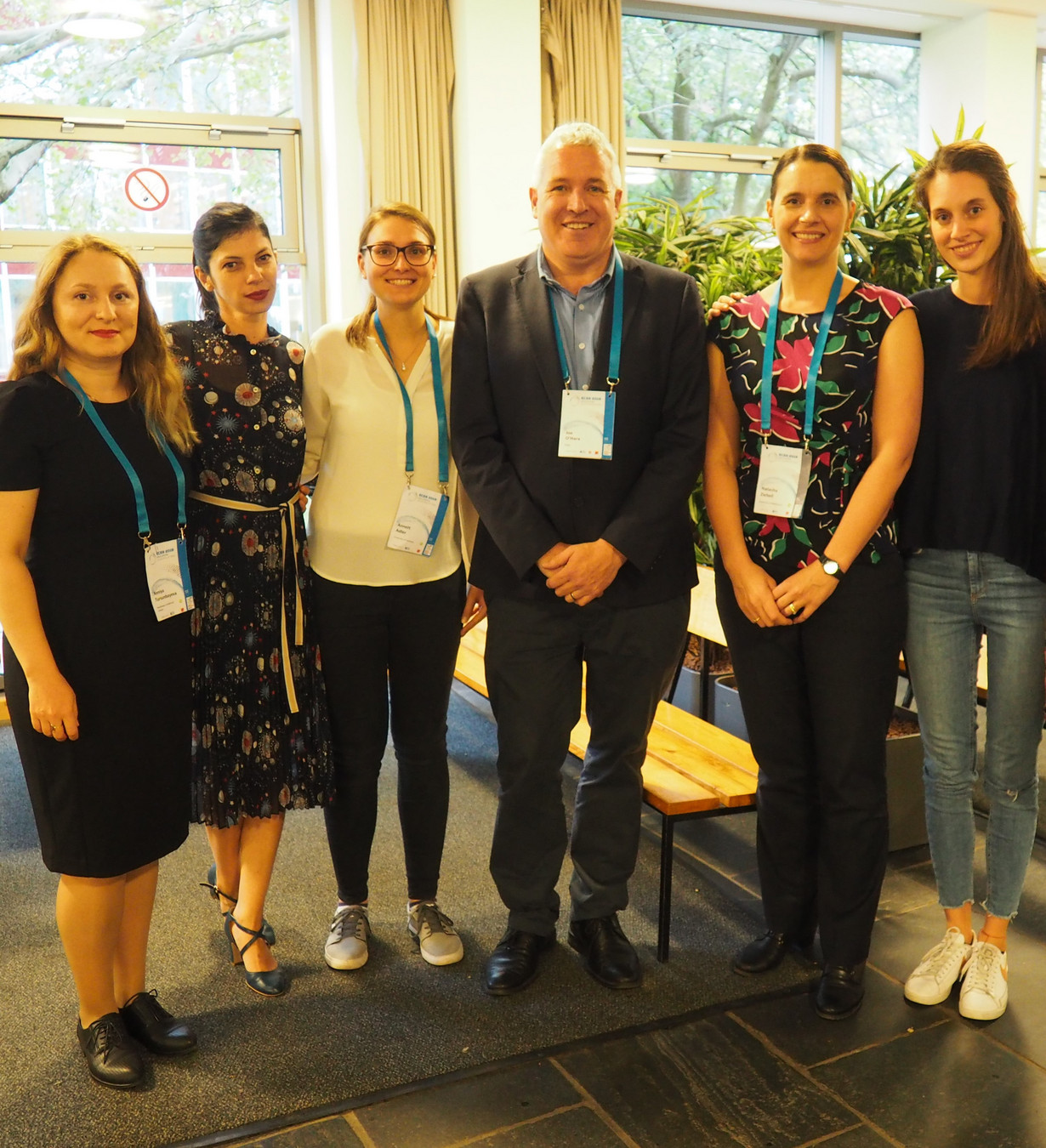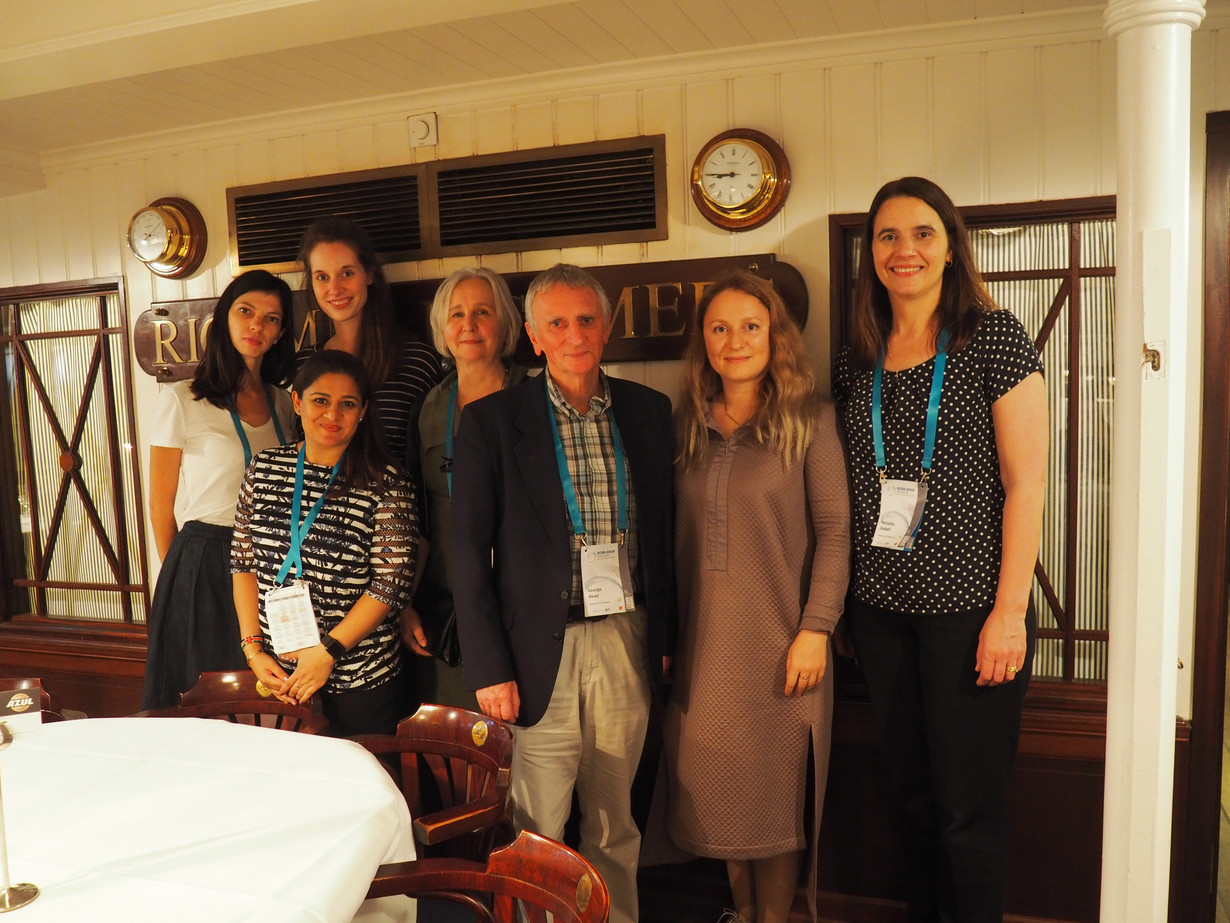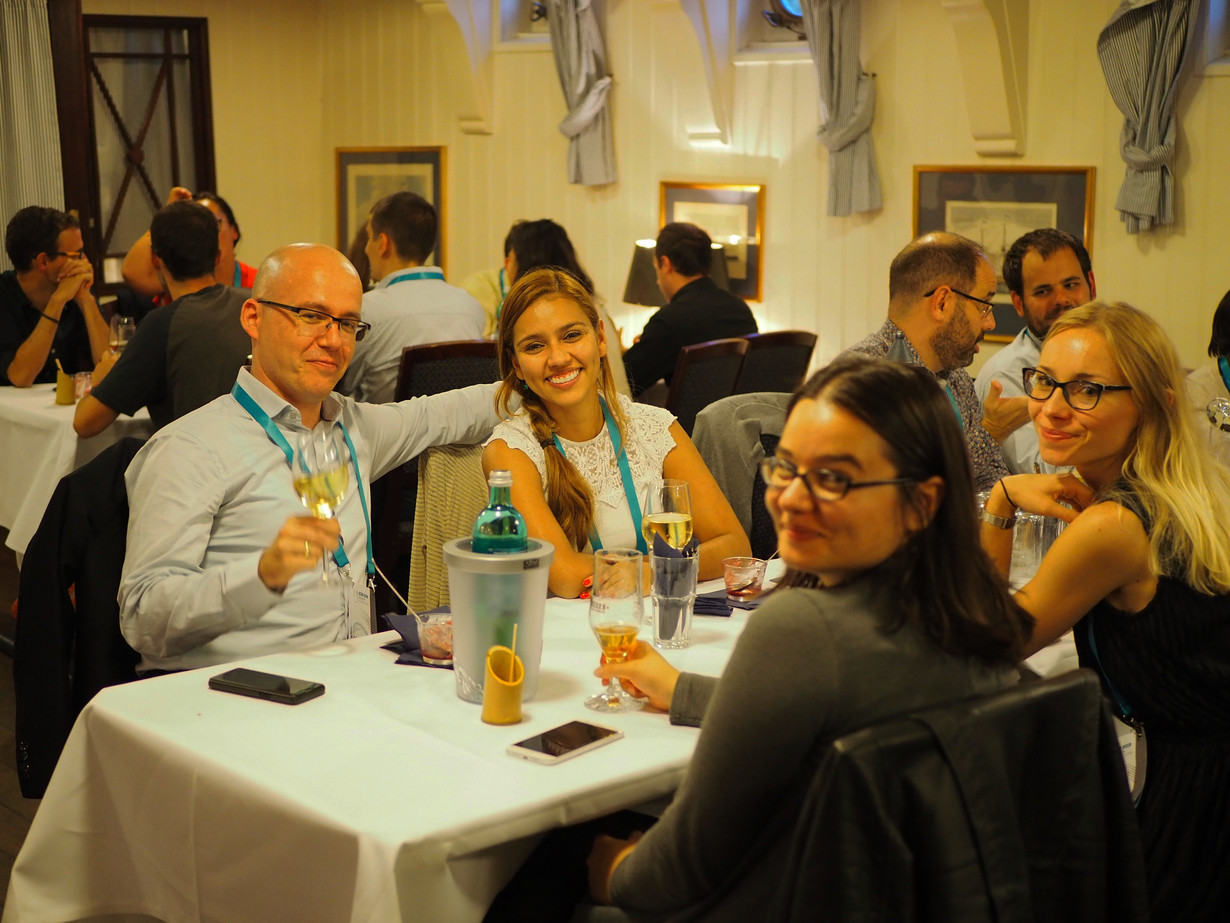Annual Report 2019, Hamburg
The ERC2019 challenged participants to reflect and debate the role of educational research and practice in providing opportunities for sustainable, peaceful and equitable co-existence that appreciates diversity and diversification under conditions of uncertainty and risk now and in the future. The speakers in the programme were uniquely placed to debate these and highlight the key themes, trends and current practices for the audience. This year’s ERC was particularly referenced in evaluations for its high-quality discussion, research and collaborative opportunities that it provided to those that attended.
Programme modification: For the first time, the second day’s programme was changed around so as to try to address the issue of participant numbers during the ERC keynote. The pilot worked very well with almost double the number of participants present for the lecture by Prof Theo Wubbels, Emeritus Professor of Educational Sciences at Utrecht University, Netherlands. Theo’s keynote on ‘How Can Young Scholars Survive and Build a Career in Academia?”’ was exceptionally well-received, with a lot of demand via social media for colleagues who were not present to view a recording. The potential for recording the ERC2020 keynote shall be discussed with LOC 2020.
Paper, poster and Ignite Talk sessions: There were 71 parallel paper and interactive poster sessions across the two days, including a very well-attended Ignite Talk session with engaging discussions. Thematic focus of the presentations, as with all ERCs, ranged from across the range of networks.
A second level of analysis of second network preferences reveals the top three networks as NW: 10 Teacher Education Research; NW:22 Research in Higher Education and NW:4 Inclusive Education. Session feedback/return slips indicated exceedingly positive comments by the chairs/mentors, most notably about academic rigour of papers and the high quality of discussions around methodology, content, limitations, society, epistemology. A number of chairs/mentors also commented positively about the questions and contributions from the audience and their engagement with the papers presented. This year, unusually, there were also frequently positive feedback about the cohesiveness of programme planning and the manner in which papers in each session complemented each other, (and where papers were disparate, efforts were made to try to find links) which is always a challenge for the ERC in view of last minute drop-outs and participants travel and availability constraints. It was pleasing to hear this feedback, and every effort shall continue to made to ensure continued session cohesiveness moving forward. In terms of areas of note moving forward, chairs/mentors of those sessions with smaller numbers of participants noted that it was possible because the main ECER opening ceremony was taking place at the same time. This is challenge we find year or year, and difficult to address at this point in time. Technical issues persisted, including a laptops not being present in some rooms, which impacted the time that presenters had. This will be raised as a matter of priority with ERC2020 LOC.
Interactive session: A well-received interactive session kicked off proceedings with discussions about ‘research that empowers: inclusive approaches.’ The session was facilitated in collaboration with the Local Organising Committee and resulted in thought-provoking debate about why research needs to be as unbiased as possible, how conflicting interests can be made transparent and how the process needs to protect the researched both as individuals and as representatives of the social group that the research focusses on.
EERA Network workshops: The ERC2019 also offered two EERA Network workshops. NW 28 (Sociologies of Education) offered a workshop titled ‘Positioning contemporary educational research’ which opened the space for a critical discussion on the role of educational research in the contemporary field of knowledge production on education, education policy and educational practice. NW 33 (Gender and Education) offered a workshop on ‘Researching gender and education in Europe’, which explored ways of using theory to provide robust explanations of empirical studies. Both NW workshops were exceptionally well attended and resulted in the development of a channel for emerging researchers to participate in the wider network activities. Direct links between the ERG and networks are also becoming stronger, for instance NW:10 explicitly invited ERG members to attend it NW meeting and this information was cascaded through the ERG membership.
Capacity-building workshops: During the ERC2019, in response to emerging researchers’ needs based on last year’s feedback, we offered for the first time, four additional capacity-building workshops. There was a workshop facilitated by emerging researchers themselves, titled, “Tools to Overcome Internal and External Barriers to Academic Writing”. Colleagues from the externally-based Vitae organisation, who support the professional development of researchers as they strive for research excellence, innovation and impact, lead a workshop titled ‘Realising Your Potential as a Researcher’. These were offered in parallel with two other workshops on ‘Making your thesis shine by signposting your journey’; ‘Writing for your Research Community, Writing for the EERJ ‘. Informal lunchtime sessions: As is practice, the ERC2019 offered invaluable opportunities for networking and collaboration throughout the two days. Building on last year’s success, this year, participants were offered a unique opportunity to participate in an informal lunch time session titled ‘Making the most of the ERC and ECER’ where they were able to speak with experienced academics and the ERG co-conveners who supported them to chart their way through the conference programme. This session was overwhelmingly well-received, with over 50 emerging researchers attending and 10 senior academics representing EERA’s Executive Committee, Council, Networks, National Associations, Local Organising Committee and the ERG co-convenor group. The second informal lunchtime session ‘Lunch Break with Local Academics’ also offered to participants for the chance to discuss and exchange ideas around a focused topic with a number of local academics. Both lunchtime sessions were the perfect way for emerging researchers to share a meal and to get to know, meet, connect and network both with their peers and local academics, sharing the latest ground-breaking insights on topics of interest. The ERG co-convenors played a key role in the activities, helping to facilitate discussions and alleviate emerging researchers’ apprehension about engaging with the vast and diverse ERC2019 programme.
Best Poster Awards: In another first during the ERC2019, in addition to the usual Best Poster Award, a ‘Popular Vote Poster Award’ was piloted wherein a peer-based vote was undertaken for participants to individually decide which poster they liked the best, based on the interactive presentations. Both Awards were announced during the ERC2019 closing ceremony. ERC session chairing mentorship programme: During the ERC2019, a number of emerging researchers were given the opportunity to be mentored to chair sessions. 8 emerging researchers took up the opportunity which included some of them shadowing an experienced academic, and then later being observed by an experienced academic as they independently chaired sessions for the first time on an international platform.
The ERC2019 on the whole, was the culmination of another successful year for the ERG, topped by being showcased on local TV as a leading news piece in North-German-Television (NDR): https://www.ndr.de/fernsehen/sendungen/ndr_aktuell/index.html



